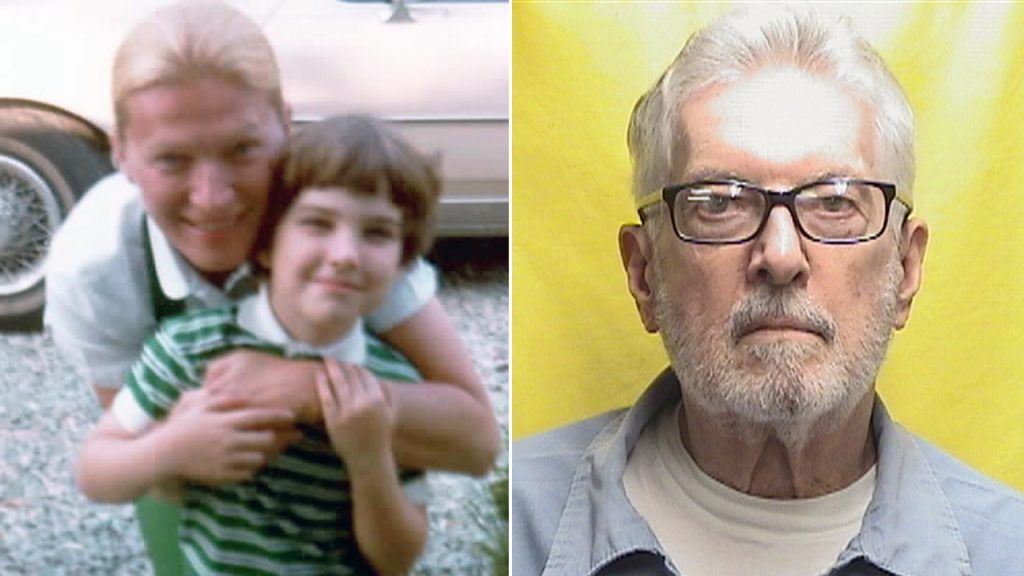The chilling story of Collier Landry began five days after Christmas in 1989, etched in his memory by the unsettling sound of “a body hitting a wall.” An 11-year-old boy tucked in bed, Landry was unknowingly witness to the final moments of his mother, Noreen Boyle, a victim of domestic violence in their Ohio home. The sounds, forever haunting him, were followed by the chilling sight of his father’s shoes in his doorway, confirming his worst fears. A primal instinct compelled Landry to feign sleep, a decision he credits with saving his life. The tragic event marked the beginning of a harrowing journey for a young boy forced to confront the unimaginable – his father as his mother’s killer.
Noreen Boyle, remembered fondly by Landry and his childhood friends, was a beacon of kindness and compassion. She instilled in her son the importance of giving back, evidenced by their annual holiday tradition of donating half of his toys to less fortunate children. This act of selflessness, coupled with her unwavering optimism and strength in the face of her husband’s aggression, painted a stark contrast to the darkness that lurked within their home. She shielded her son from the escalating abuse, holding onto hope for a brighter future for them both, a future tragically cut short.
Dr. John Boyle, a prominent osteopath, presented a facade of respectability that masked a troubled marriage marred by infidelity and aggression. As divorce proceedings commenced, John’s true nature emerged, marked by escalating violence and verbal abuse directed at both Noreen and young Collier. He threatened them with homelessness and boasted of a new family, adding to the mounting pressure on Noreen. Despite the turmoil, she remained resilient, striving to maintain a sense of normalcy for her son, shielding him from the full extent of her husband’s cruelty.
The morning after the murder, the nightmare continued. John Boyle spun a fabricated tale of Noreen taking a vacation, urging Landry not to involve the police. But Landry’s intuition, sharpened by fear and the unsettling events of the night, told him otherwise. He bravely contacted his mother’s best friend, setting in motion an investigation that would expose his father’s horrific crime. Despite initial skepticism from authorities, Landry’s persistence, particularly his detailed account to Captain Dave Messmore, proved crucial in launching the investigation. At great personal risk, the 12-year-old boy defied his intimidating father, determined to uncover the truth about his mother’s disappearance.
The investigation, aided by search warrants obtained partly due to Landry’s testimony, led to the grim discovery of Noreen Boyle’s body less than a month later. Buried beneath the basement floor of John’s new home in Erie, Pennsylvania, her remains were a chilling testament to his brutality. The discovery solidified the young boy’s tragic role – not just as a witness, but as a key player in bringing his father to justice. He faced his father in court, his testimony a crucial piece in securing a conviction for aggravated murder and abuse of a corpse. Despite John Boyle’s vehement denial and nine-hour testimony, the jury saw through his lies, thanks in no small part to the courage of his son.
The aftermath of the trial brought further hardship for Landry. Abandoned by both sides of his family, he grappled with the profound isolation of losing both parents in such a traumatic way. His mother’s family shunned him for his resemblance to his father, while his paternal family pressured him to recant his testimony. Despite the pain of this double betrayal, he was adopted by a loving family, providing a semblance of stability in a life shattered by violence and loss. While grateful for his new family, the scars of abandonment and the weight of his experience left an indelible mark on his young life. He carried the burden of his past, learning to navigate the complex emotions of loss, betrayal, and the fight for justice.
Collier Landry, now using his middle name as his surname, has transformed his pain into purpose. He has embraced a career as a cinematographer and director in California, far from the scene of his childhood trauma. He has also become a speaker and coach, offering guidance and support to others who have endured similar experiences. His story, rooted in the darkest aspects of human nature, ultimately is one of resilience, healing, and the enduring power of the human spirit to overcome adversity. He shares his journey, not just as a true crime narrative, but as a testament to the possibility of finding peace and strength in the face of unimaginable loss. He offers a message of hope to others, a message that echoes his own inner strength: “You’re going to be OK. You’re going to make it.”

